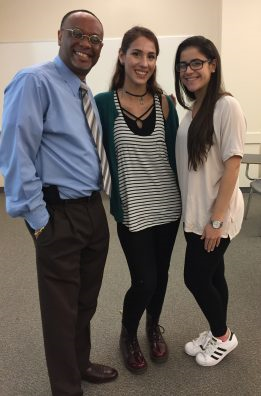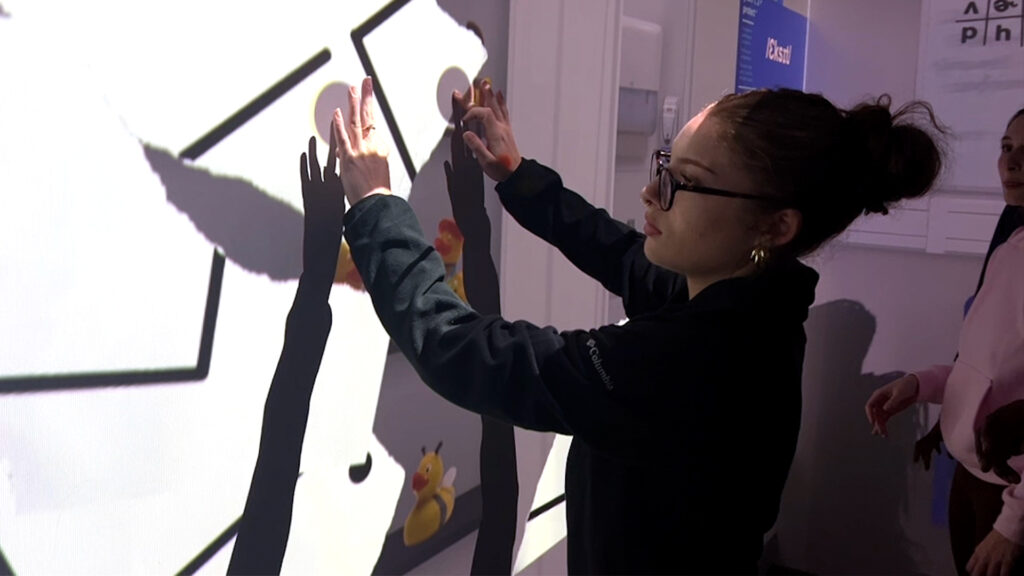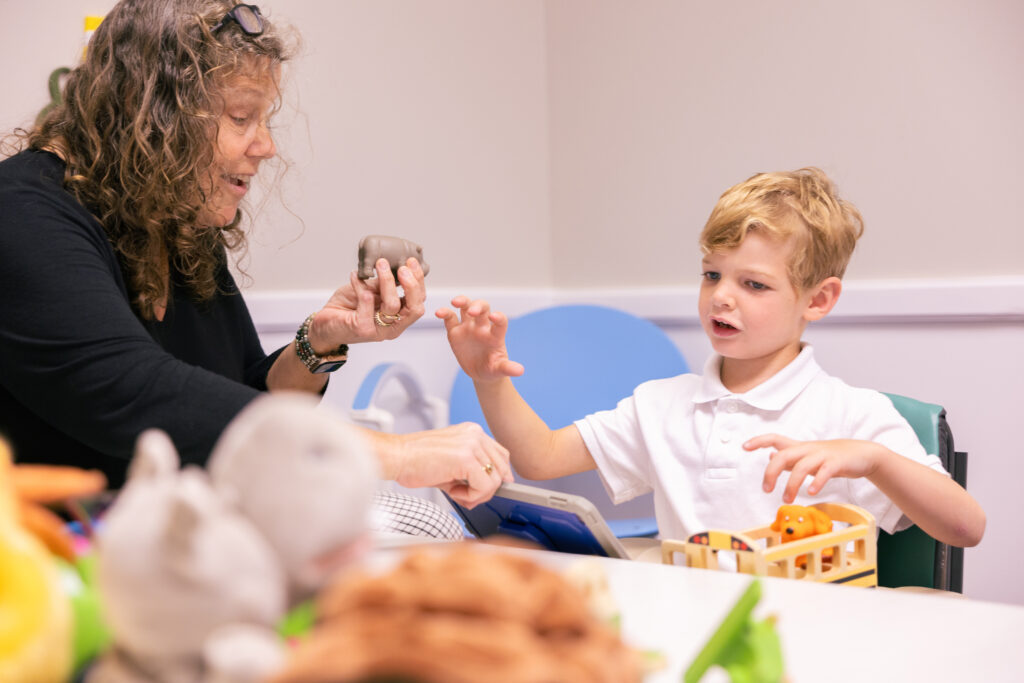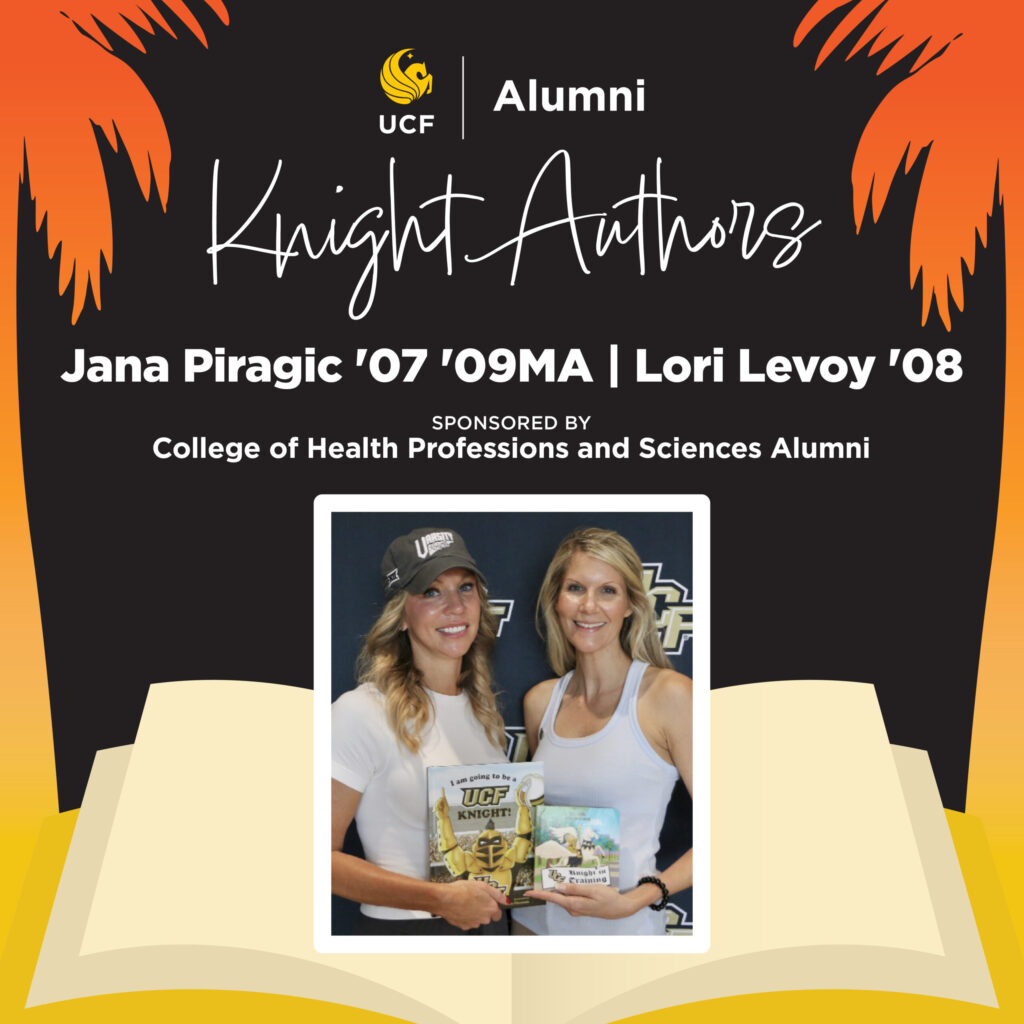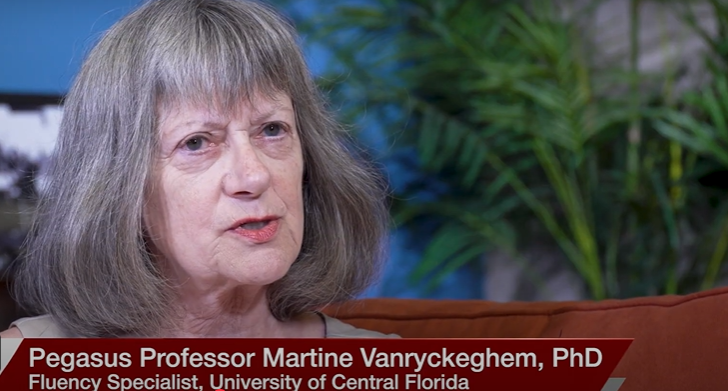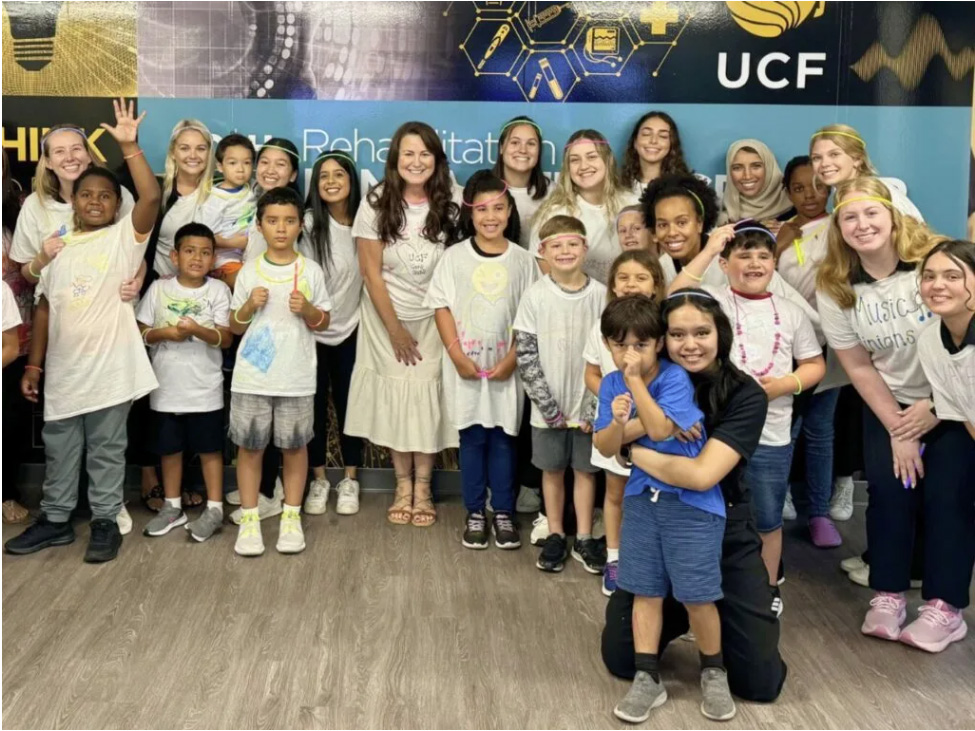What began as an ordinary hangout between two University of Central Florida students and friends will end as a reunion of long-lost families.
Isabel Morejon and Monica Lopez, both communication sciences and disorders majors who will graduate Dec. 16, were on the couch unwinding from a family heritage class project at Lopez’s apartment when she noticed the surname Morejon also appeared in her family lineage.
“You have the same last name as my grandmother’s maiden name,” Lopez said to Morejon. That spurred the two to compare family heritage notes. What they found is both their families trace back to a small mountainous town in Cuba called Pinar del Rio, then even further back to the Canary Islands of Spain – places that both are filled with small, close-knit communities.
“Every Morejon in Pinar del Rio is related,” Morejon’s father, Julio, told her when she called him with their newfound information. “We’re definitely related.”
Lopez, a first-generation scholar in her family, responded to the news by jumping around, excited at the possibility of new family members and because she felt like a “genius” for piecing the information together. However, they still wanted to know more to be sure of their connection.
Family phone calls revealed the separation likely happened several decades ago when their relatives took different paths to move from Cuba to flee the communist rule.
“My grandfather’s dad was jailed by Fulgencio Batista, the former president of Cuba, for speaking out against the government. At 15 years old my grandfather started digging ditches as a way of work to provide for the family,” Morejon said. “He worked his way up to own his own construction company, and was responsible for many important developments in Cuba. When Fidel Castro took power and imposed a communist agenda, my grandfather fled to Miami with his siblings for a short stay and then to Puerto Rico.”
Morejon’s father then was born in Puerto Rico, and at 10 years old, again moved to Miami with his family where Isabel later was born. They now reside in Davie, near Ft. Lauderdale.
Meanwhile, most of Lopez’s extended family still lives in Pinar del Rio except for her grandmother, who in the 1970s fled Cuba with Lopez’s mom and siblings in hope of a better life. They ended up in Miami where Lopez was born and her family still resides.
Despite both having South Florida roots, Morejon and Lopez didn’t meet each other until they shared a language science class at UCF in spring 2015. They have been good friends since.
“She’s always reminded me of my family,” Morejon said of Lopez. “Her personality and the way she speaks – it reminds me of growing up in Miami.” Although they haven’t been able to find the exact link yet, Morejon and Lopez believe their great grandfathers were cousins. Their families will meet for the first time at their graduation ceremony, where Morejon’s father and Lopez’s grandmother plan to further explore their ties.
The class that spurred their family research was Multicultural Aspects of Communication Disorders and Differences that’s taught by Associate Professor Kenyatta Rivers. Ever since Rivers has been teaching the course – almost 12 years – he’s had his students complete a heritage assessment. He’s never seen findings as striking as Morejon and Lopez’s story.
“Part of the focus of the course deals with attitude and perceptions of individuals that can affect clinical interactions later,” Rivers said. “The purpose is to learn about other ethnic, racial and cultural backgrounds, but first, you need to have an understanding of your own.”
After graduation, Morejon and Lopez again will follow similar paths. They both plan to move back to South Florida, where Lopez will become a speech language pathologist assistant and Morejon will work in equine therapy. They also both plan to attend graduate school.
“I never imagined I would find something interesting about my culture from that project. I thought I knew everything about me and my family,” Lopez said. “Our families are up to date on what we’ve found and they all want to pursue finding out more. Cubans are very open to family.”
